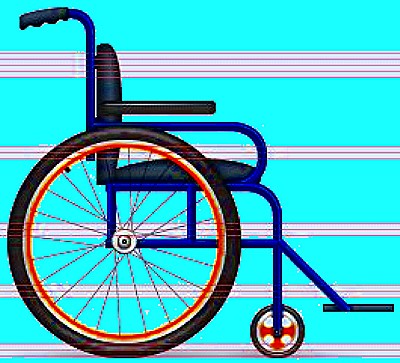
| Air Travel Tips For Seniors With Disabilities |
 |
 If you’re not getting around as easily as you did in younger days, consider suggestions for upcoming travel ventures. 1. Check with your physician to discuss travel plans. If your condition is not up to the rigors, it may be wise to moderate, postpone or cancel the trip. Don’t attempt stressful activities that could worsen health, as well as cause problems for those traveling with you. 2. Take an adequate supply of all meds you normally use daily, both prescription and over-the-counter. If they’ll be in a carry-on bag, put them together into a see-through plastic pouch, so that airport security can quickly examine them. It’s also important to have copies of signed prescription forms that cover those meds, as well as the doctor’s email address and phone number. Keep a list of daily meds on you at all times while traveling. 3. Get to the airport earlier than required: an hour for domestic and two hours before overseas flights. If traveling during holiday and other heavy-traffic days, allow even more time. With crowded highways and jammed airport parking lots, arriving early has to be a priority. 4. If with a cane or walker, call or Email at least a day ahead of your flight to your airline that you’ll need a wheelchair and attendant in the airport. Be sure to include flight number and time when expected arrival at the airport. Do the same for change of plane schedules and return trip. If with a service dog, check with the airline early for all requirements involved. 5. Keep a well-charged smartphone with you at all times, with one-button-touch emergency numbers keyed in. Along with a travel companion, the cell phone gives you an extra level of security. 6. Get plenty of rest at home before you go to the airport. With complexities of getting through security, crowded facilities and uncertain schedules added to your disability, you’ll need all the stamina you can muster. If there will be delays in the waiting area of more than an hour, ask airport or airline representatives if there’s a special rest area you can use. Some airports rent out private waiting spaces, while upscale airlines offer restful club areas for frequent flyers and high-level ticket holders. 7. Before you go, especially on flights that last more than two hours, eat and drink sparingly. With your disability, it’s always difficult for to get out of your seat and to the bathroom. 8. If your disability makes flying too uncomfortable in the tight cheap airline seat, consider paying for an upgrade to a larger, more comfortable seat. Consider one that folds into a flat bed. Though your bank account will suffer a bit, your body will thank you. |